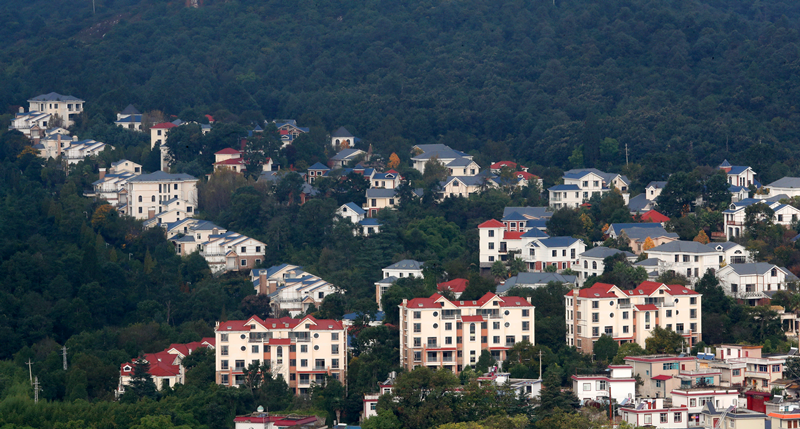Anning retains its Civilized City title

For 25 years, Anning, the only county-level city in Kunming, Yunan province, has been making all-round efforts to build itself into a modern industrial and livable garden-like city.
Remarkable achievements have been made during the process, evidenced by a series of honorary titles Anning has received. They included a national forestry city, a national hygiene city, a national water-saving city and a national garden city.
In 2017, Anning was included in the list of National Civilized Cities, which is selected by the Central Commission for Guiding Cultural and Ethical Progress, the first of its kind in Yunnan province. This year, it passed the commission's test and maintained its national civilized city status.
As for industry, Anning was listed among China's top 100 counties and county-level cities in comprehensive economic competitiveness at the end of 2019. It also ranked first in the list of China's top 100 counties and county-level cities with future investment potential at the same time.
Anning, serving to link Kunming with eight prefectures and cities in western Yunnan, boasts rich natural and cultural resources, such as hot springs and historical buildings. Rational use of these resources has been focused on by the local government when developing tourism.
One of the historical sites is Yaocen Pavilion, where Yang Shen, a zhuangyuan in Ming Dynasty (1368-1644), gave lectures for years. Zhuangyuan is an honor given to the scholar who achieved the highest score at the highest level of the Chinese imperial examinations.
Along the Tanglangchuan River is a saltworks, another historical and tourist site in Anning. The city is an important salt production base in Yunnan. Its salt industry reached a peak development during the Ming and Qing (1644-1911) dynasties when locally produced salt was exported to India and Southeast Asian countries and regions through the ancient Tea House Road, a trade route that started in the Tang Dynasty (618-907).
In the saltworks, sculptures related to salt-making process and statues of officials viewing salt wells have been set up to help depict the history of the industry.
Since Anning was upgraded to a county-level city in 1995, it has launched several development projects. They aim to become a front-runner in high-quality development in the province and a regional international economic hub in western China.
The projects include a State-level industrial park, a large land port mainly serving South Asia and Southeast Asia, and six industrial bases involving such sectors as iron and steel, petrochemicals, education and modern agriculture.
Anning attaches great importance to environmental protection and has striven to improve people's livelihoods. It has carried out maintenance and renovation work on a group of cultural relics and plans to build a large public square this year.
Annually, the local government invests nearly 200 million yuan ($30.42 million) in city management projects.
As of now, a total of 151 public toilets have been upgraded, and a batch of larger and more professional street-cleaning and garbage-collection vehicles have been put into use.
To create a better living environment, Anning enforces stringent dust control on city roads and construction sites, and has shut down some polluting companies and those with outdated production technologies.
The city now boasts a forest coverage rate of 51.53 percent, with per capita public green space reaching 14.05 square meters. It also has a 100-percent harmless disposal rate of urban solid waste. The rate of good and excellent air quality has been stable at over 99 percent.
In 2021, Anning plans to invest at least 2.4 billion yuan to carry out 30 city construction and upgrading projects, according to the local government.
Reporting by Hao Nan (China Daily); editing by Wang Jingzhong